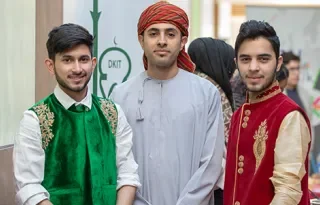Visas and Immigration
Citizens from some countries require a study-visa for Ireland. Your exact preparations depend on your plans and personal circumstances. Some of the most important are described below. All queries relating to your visa should be directed to your Education Agent. This section includes guidance for students needing to navigate the Visa process.
Embassies in Ireland
For the most up-to-date list of Embassies in Ireland please visit the Department of Foreign Affairs and Trade website. Please note that not all countries listed have an Embassy or Consulate in Dublin, some Missions who have responsibilities for Ireland may be located elsewhere.
